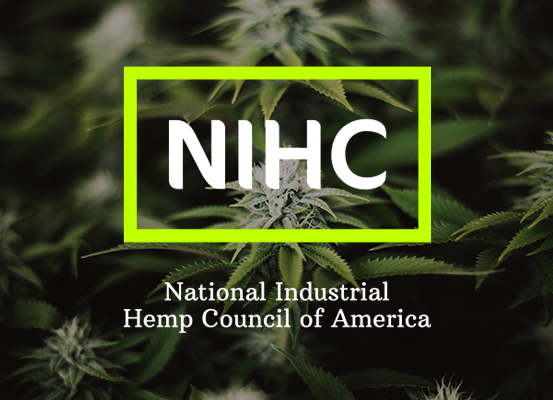A Pathway Forward for Hemp and CBD
If you pay attention to cannabis policy and follow its progress on Capitol Hill, this week was an exciting week for our industry. It’s been long-rumored that Senate Majority Leader Chuck Schumer (D-NY), Senator Corey Booker (D-NJ) and Senator Ron Wyden (D-OR) would be introducing the Cannabis Administration and Opportunity Act (CAOA) – legislation to decriminalize marijuana. At NIHC, we don’t have as much to say about that as our cousins in the high-THC business do; but we are certainly minding its portents for the hemp industry. There’s a lot to love in the bill, and many questions too.
The co-sponsors of this bill released their legislation in draft form which means that it hasn’t been formally introduced. NIHC applauds this as a smart and strategic approach that embodies the hard lessons we’ve all learned about the complexities and pitfalls of hemp policy by releasing a draft form of the legislation and seeking industry feedback. As we all know, hemp and higher-THC derivatives are extremely complicated, particularly when regulatory authorities are trying to catch up to industry innovation and we’re operating off of a state-by-state patchwork of laws. Therefore, we much appreciate this approach from the sponsors, and NIHC will continue to engage lawmakers and provide input on the many technical provisions of the bill that relate both directly and indirectly to the hemp industry.
At first glance, the draft legislation contains many positive elements, but it also understandably raises a significant number of technical questions that require careful consideration. We’re hopeful that our history of navigating the regulatory challenges over the last three years and the feedback that we can provide will be a value-add to the entire hemp industry, because there are many important things to consider.
For instance, the draft legislation would allow hemp-derived CBD as a dietary supplement. But it would not explicitly allow other hemp products, as does the bill introduced earlier this summer by Senator Wyden along with Senators Merkley and Paul. The draft legislation introduced this week also would not allow for the inclusion of CBD to be an ingredient to food as the Merkley-Wyden-Paul bill does. So as an industry, we need to work through those differences by soliciting feedback from you and determine the best course of action going forward.
Another curiosity coming out of CAOA is the mandate for ‘cannabis’ (meaning high-THC cannabis and excluding hemp) cultivation to be administered by the Treasury Department, in connection with ATF/TTB authority that will be extended to cannabis. What will it be like for hemp cultivation to be administered by one Department (USDA), and high-THC cannabis cultivation to be administered by another? How will the two coordinate, and what opportunities and pitfalls might our respective industries encounter? Much to ponder.
Meanwhile, another element that appears promising is the bill’s provision for ‘hot’ hemp crops (over the THC limit) to be eligible for diversion into the cannabis value chain. While we all appreciate the sponsors’ evident intent to take another opportunity to help hemp farmers mitigate their risk of hot crops, we should be clear-eyed in recognizing that this may be of little solace. There would likely be little value to hemp farmers who already have extremely low THC in their crops in a market where high THC potencies are the stock in trade.
By far the simplest and most expedient way to relive hemp farmers of the risk of ‘hot’ crops is to change the Federal definition of hemp from an upper limit of 0.3% delta9-THC to one that limits the concentration of all tetrahydrocannabinols to 1%, as many stakeholders have long advocated (including, as of February 2021, 45 State Agriculture Commissioners). And, by the way, it’s worth noting that the CAOA’s removal of all tetrahydrocannabinols from the Controlled Substances Act further supports the need for such a change. NIHC continues to work on this very closely with key Members in the Senate and House; watch this eNewsletter for more developments.
There are many other questions for our industry to consider and, to be frank, our NIHC staff and government affairs co-chairs Rick Fox of Meristem Farms and Jeff Sands of Columbia Care are still parsing through the bill to identify technical issues, provide feedback to Hill staff, and contemplate new questions that arise. Be on the lookout in next week’s newsletter for an in-depth interview with Rick Fox after we’ve had time to parse the individual provisions in the 167-page bill.
Regardless, we’re going to need your input. You can view the 20-page factsheet here and read the text of the legislation by clicking on the hyperlinks. It’s important to take the time to review this draft and let us know your thoughts. Please email your comments to info@hempindustrial.com if you find something that is concerning to you or if you identify items that you believe need to be addressed.
Have a great weekend and happy reading! We look forward to hearing from you.

